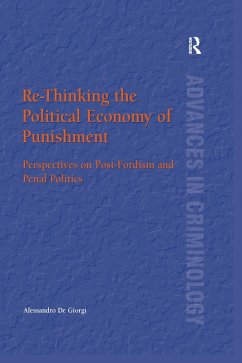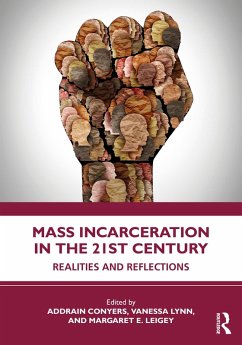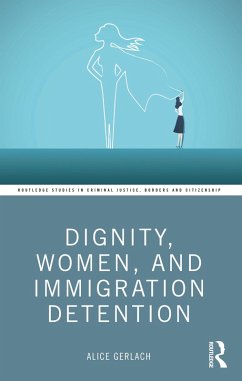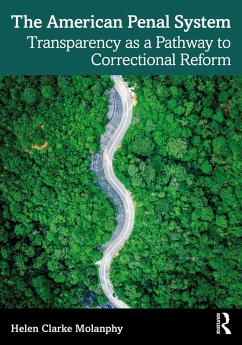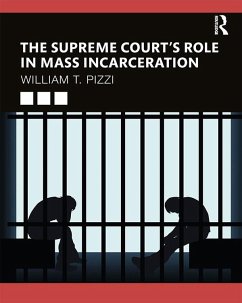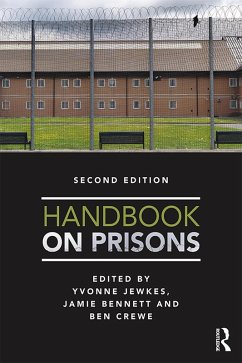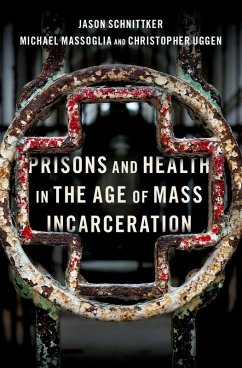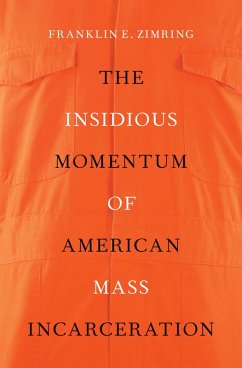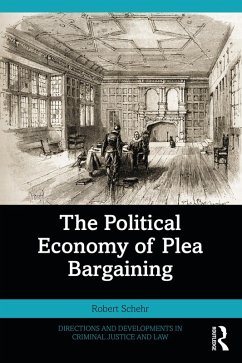
Re-Thinking the Political Economy of Punishment (eBook, PDF)
Perspectives on Post-Fordism and Penal Politics
Versandkostenfrei!
Sofort per Download lieferbar
46,95 €
inkl. MwSt.
Weitere Ausgaben:

PAYBACK Punkte
23 °P sammeln!
The political economy of punishment suggests that the evolution of punitive systems should be connected to the transformations of capitalist economies: in this respect, each 'mode of production' knows its peculiar 'modes of punishment'. However, global processes of transformation have revolutionized industrial capitalism since the early 1970s, thus configuring a post-Fordist system of production. In this book, the author investigates the emergence of a new flexible labour force in contemporary Western societies. Current penal politics can be seen as part of a broader project to control this la...
The political economy of punishment suggests that the evolution of punitive systems should be connected to the transformations of capitalist economies: in this respect, each 'mode of production' knows its peculiar 'modes of punishment'. However, global processes of transformation have revolutionized industrial capitalism since the early 1970s, thus configuring a post-Fordist system of production. In this book, the author investigates the emergence of a new flexible labour force in contemporary Western societies. Current penal politics can be seen as part of a broader project to control this labour force, with far-reaching effects on the role of the prison and punitive strategies in general.
Dieser Download kann aus rechtlichen Gründen nur mit Rechnungsadresse in A, B, BG, CY, CZ, D, DK, EW, E, FIN, F, GR, HR, H, IRL, I, LT, L, LR, M, NL, PL, P, R, S, SLO, SK ausgeliefert werden.




